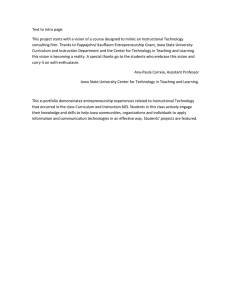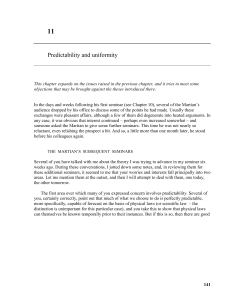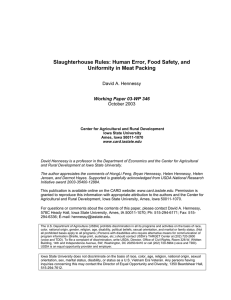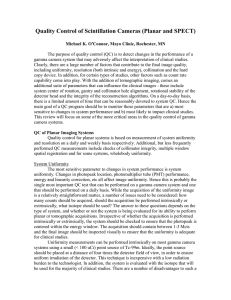Associated Press 04-21-06 AGs resist food uniformity law
advertisement
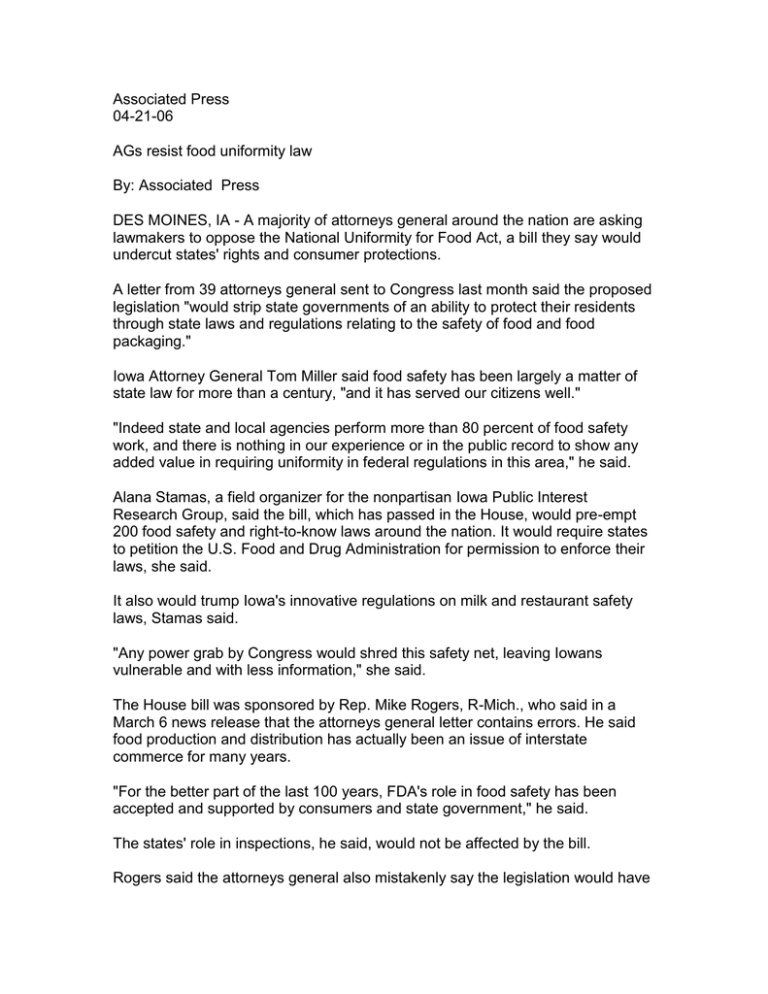
Associated Press 04-21-06 AGs resist food uniformity law By: Associated Press DES MOINES, IA - A majority of attorneys general around the nation are asking lawmakers to oppose the National Uniformity for Food Act, a bill they say would undercut states' rights and consumer protections. A letter from 39 attorneys general sent to Congress last month said the proposed legislation "would strip state governments of an ability to protect their residents through state laws and regulations relating to the safety of food and food packaging." Iowa Attorney General Tom Miller said food safety has been largely a matter of state law for more than a century, "and it has served our citizens well." "Indeed state and local agencies perform more than 80 percent of food safety work, and there is nothing in our experience or in the public record to show any added value in requiring uniformity in federal regulations in this area," he said. Alana Stamas, a field organizer for the nonpartisan Iowa Public Interest Research Group, said the bill, which has passed in the House, would pre-empt 200 food safety and right-to-know laws around the nation. It would require states to petition the U.S. Food and Drug Administration for permission to enforce their laws, she said. It also would trump Iowa's innovative regulations on milk and restaurant safety laws, Stamas said. "Any power grab by Congress would shred this safety net, leaving Iowans vulnerable and with less information," she said. The House bill was sponsored by Rep. Mike Rogers, R-Mich., who said in a March 6 news release that the attorneys general letter contains errors. He said food production and distribution has actually been an issue of interstate commerce for many years. "For the better part of the last 100 years, FDA's role in food safety has been accepted and supported by consumers and state government," he said. The states' role in inspections, he said, would not be affected by the bill. Rogers said the attorneys general also mistakenly say the legislation would have an impact on state labeling requirements. Most of those, he said, are food ingredient labeling requirements, and would not be impacted by the bill. It would, however, regulate warning labels. "The uniformity in food warnings under the bill will enhance food safety and public health," he said. Sam Beattie, a food safety specialist for the Iowa State University Extension, said many in the food safety industry, including the Association of Food and Drug Officials, are opposed to the bill because it "would take a lot of state regulations out of the purview of the state." "If a state wants to put tighter controls on the foods, the state should be allowed to do that," he said. Beattie said it could take up to 18 months before the FDA would make a decision on individual state petitions, which would then have to be adopted nationwide. He called that system "somewhat archaic." "If you're looking at the safety of oysters ... harvested off your coast, here in Iowa, does that really pertain to us?" he said. "It may not sit very well in certain cases."

